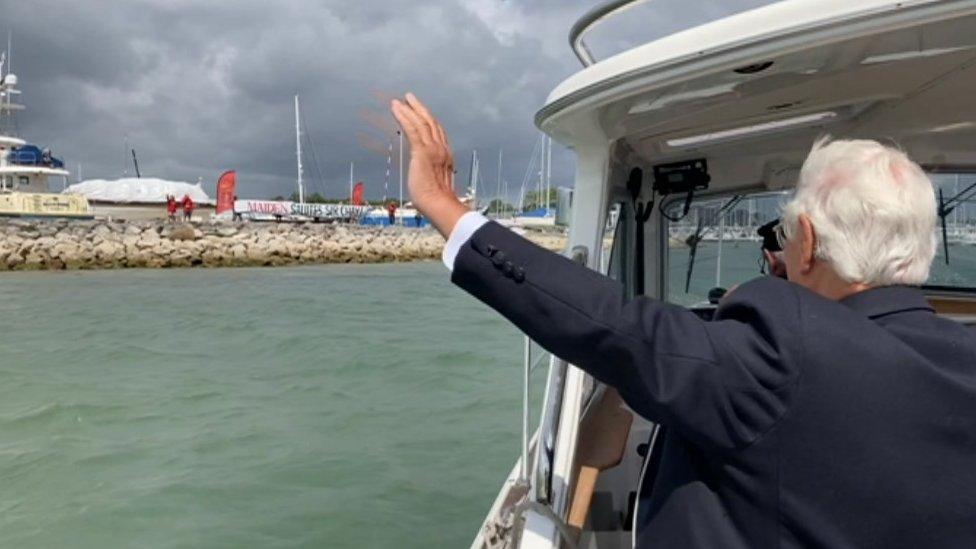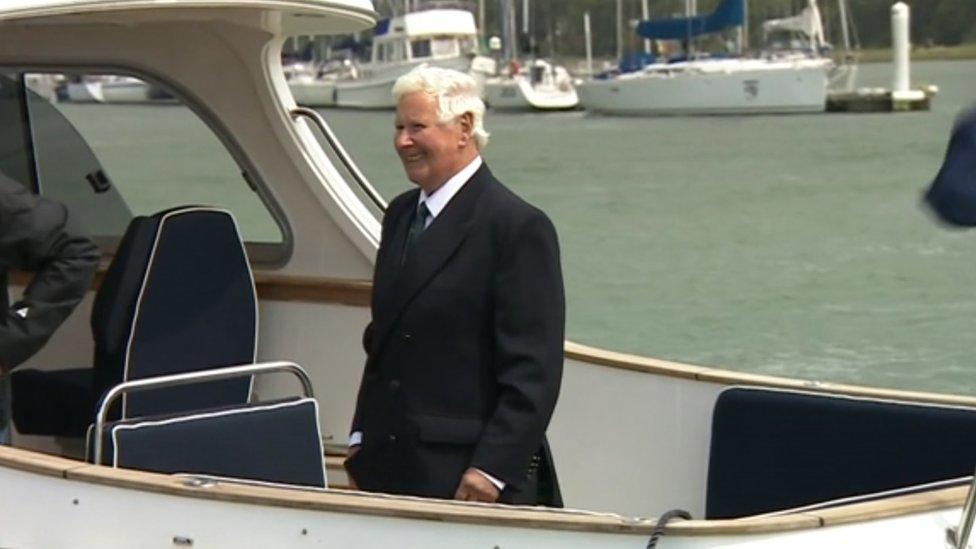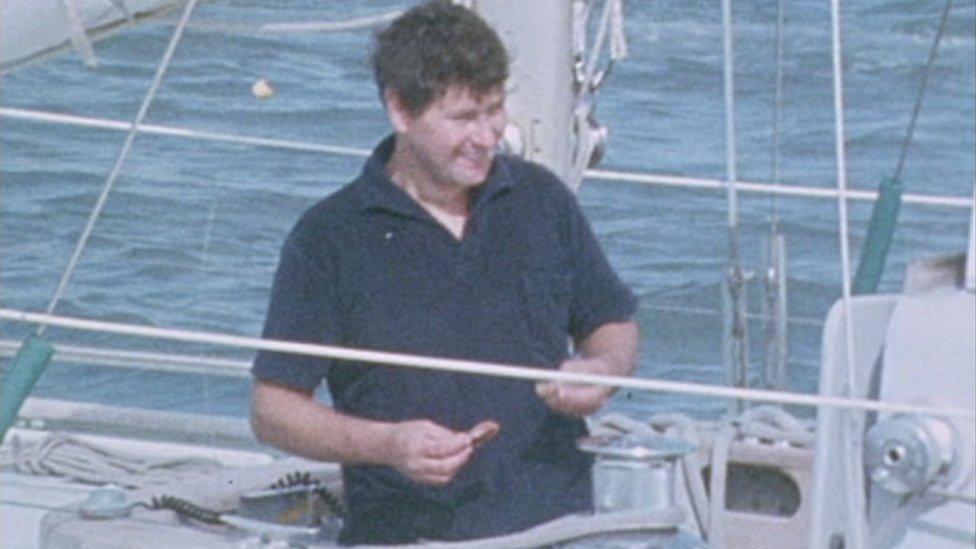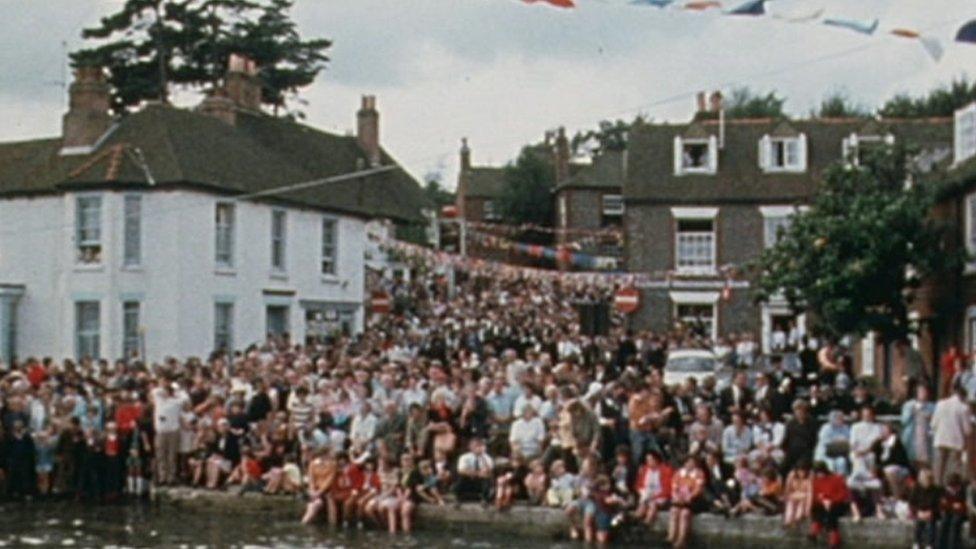Chay Blyth: Hamble flotilla marks 50 years since 'impossible' voyage
- Published

Sir Chay Blyth waved to people on the shore as the flotilla marked his achievement
The first man to sail solo around the world in the "wrong direction" has led a celebratory flotilla at the site of his historic achievement 50 years ago.
Sir Chay Blyth completed the journey in 1971, travelling west against the prevailing winds and arriving back in Hamble, Hampshire, 292 days later.
The ex-paratrooper's feat later became known as "the impossible voyage".
The 81-year-old said the anniversary celebrations were "wonderful", and thanked those who had greeted him.

The yachtsman was greeted by a number of dignitaries on his arrival at Hamble

Sir Chay was 31 years old when he took on the challenge
Sir Chay, from Hawick in the Scottish Borders, used 59ft (18m) yacht British Steel to complete the challenge, which garnered international attention.
The then-prime minister Edward Heath, the Duke of Edinburgh, the Prince of Wales and Princess Anne were among about 6,000 people to line the shore to welcome him back.
Explaining the difficulty of the challenge, Sir Chay said: "The terrestrial spin of the globe makes sure that the winds all go in one direction and the sea go in one direction... so you're up against the winds and currents.
"Up until that moment in time people had usually gone the classic route."
Pioneering aviator and solo sailor Sir Francis Chichester had previously said no-one would ever be able to do it, prompting Sir Chay's achievement to be described as "the impossible voyage" in the media.

A crowd of about 6,000 people welcomed Sir Chay back to Hamble in 1971
The accomplishment came two years after Sir Robin Knox-Johnston became the first person to perform a single-handed non-stop circumnavigation of the globe from west to east.
Sir Robin was among a number of dignitaries to greet Sir Chay on Friday morning.
He said completing the challenge had been a "great feat of British yachting".
"I think it's absolutely right to recognise Chay's remarkable voyage 50 years ago and realise just how difficult that was," Sir Robin added.
It took a further 23 years for anyone to match Sir Chay's achievement, and he remains one of only five people to have ever completed the challenge.
Sir Chay was knighted for services to yachting in 1997.

Follow BBC South on Facebook, external, Twitter, external, or Instagram, external. Send your story ideas to south.newsonline@bbc.co.uk, external.